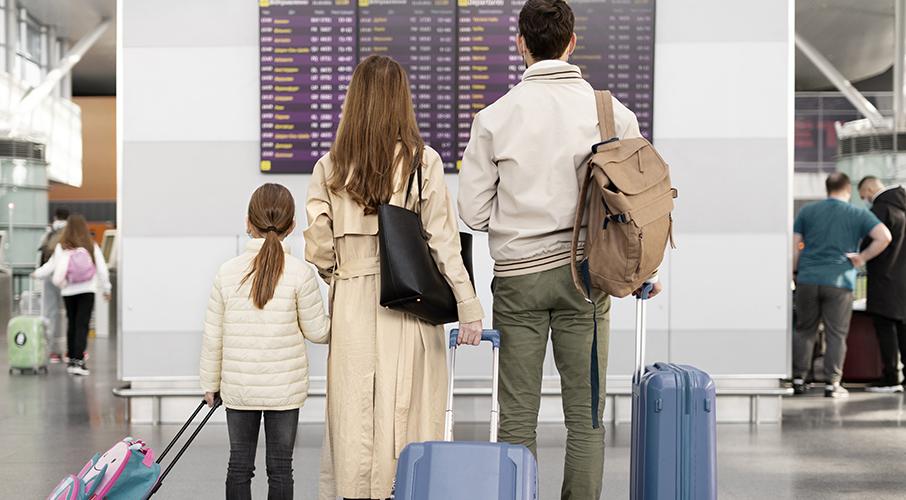How to survive relocation?!

Moving to another country is an exciting adventure full of new opportunities and perspectives. However, in addition to all the benefits associated with such a move, moving can be a source of psychological problems. Adapting to a new culture, language, lifestyle and social environment can cause stress and anxiety for many relocators. In this article, we will look at the main psychological problems that people who are relocating face, as well as offer advice on how to solve them.
1. Culture shock
One of the main psychological problems when moving to another country is culture shock. Sudden change in normal lifestyle and confrontation with new values and norms can cause feelings of loss and misunderstanding.
To overcome culture shock and successfully adapt, it is important to be open and ready to explore a new culture. Learn the language of a new country, as knowing the local language will help you get closer to the locals, understand and be understood better. Take an interest in the history and traditions of the new country, study them to learn more about the local culture and make deeper connections with the people around you.
It is important to remember that culture shock is a normal reaction. Give yourself time to adapt, be patient with yourself, and don't be afraid to ask questions. Over time, you can gradually learn new customs, habits and norms and become more confident in the new cultural environment.
2. Alienation and loneliness
When moving to another country, loneliness and a sense of alienation can be some of the most difficult psychological problems that relocators face. Lack of familiar social circles, friends, and family can create a sense of isolation and detachment from familiar surroundings.
To cope with these challenges, it is important to actively engage in new environments and join local interest groups and communities. Use the opportunities provided by local organizations, sports clubs, volunteer groups or hobby clubs to meet like-minded people and make new connections.
Explore local online communities and forums that focus on interests and activities that are close to you. Join groups on social networks where you can share experiences, ask questions and make new friends. It's important to remember that networking can be valuable, but it's also worth striving to create face-to-face connections and real-life encounters.
Also, feel free to invite locals to meetings or events. Show interest in their culture and customs, and they will gladly share their knowledge and experience with you. Do not be afraid to enter into conversations and make new acquaintances. Sometimes all you have to do is take the initiative to break the ice and make connections with new people.

3. Language barrier
Not learning a language can cause feelings of helplessness and insecurity in communication, which can lead to increased feelings of isolation and limitation. To deal with the problem of the language barrier, it is important to start learning the language in advance, even before moving. Use a variety of online resources, textbooks and language learning apps. Gradually build your vocabulary, learn grammar and the basics of speaking.
Upon arrival in a new country, it is recommended to attend language courses or hire a teacher for individual lessons. This will help you systematically improve your language skills and receive feedback from professionals. Try to engage in conversations with the locals, listen to their speech, try to repeat and imitate the pronunciation and intonation.
Reading local newspapers, magazines and books in the language of the country you are in, as well as watching local TV shows and movies, will help you immerse yourself in the language and better understand the culture and customs. It will also expand your vocabulary and improve your grammar.
It is important to remember that mistakes in language are a natural part of the learning process. Don't be afraid to make mistakes and be ready for corrections. Use the language actively in everyday situations, whether it's shopping, talking to your neighbors, or participating in local activities. The more practice, the faster you will overcome the language barrier and become more confident in communication.
4. Stress and apathy

It is important to understand that adapting to new environments takes time and effort, and feelings of stress can be temporary.
To deal with this, create structure and regularity in your daily life. This can help you feel in a more stable and predictable environment. Try to create a schedule for yourself that includes time for work, rest, study, or language classes. Set realistic goals and plan your actions so you have clear directions and a sense of control over the situation.
Don't forget to take care of yourself. It is important to take time to relax and de-stress. Physical activity, such as exercising, walking, or yoga, can help relieve stress and improve your mood. Meditation and breathing exercises can be helpful in relieving stress and focusing on the present moment. Also, do not forget to engage in your hobbies and hobbies that bring you joy and relaxation.
Be patient with yourself. The process of adapting to a new country is a gradual process and everyone experiences it differently. Give yourself time and space to adapt, don't demand too much of yourself. Learn new things, explore the environment and enjoy the new opportunities that moving to another country provides.
5. Loss of identity
Loss of identity is another significant psychological problem that people face when moving to another country. Separation from the familiar environment and cultural context can cause a sense of loss of identity. However, it is important to remember that identity is a much deeper and more complex concept that is built on various aspects of our personality.
Preserving one's roots and traditions is an important aspect in preserving one's identity. Do not forget about your nationality, religion, language and cultural values that you took with you from your native country. Keep practicing them in your new environment, attending national holidays and events, and cooking traditional cuisine to feel connected to your roots.
At the same time, open up to new cultural influences and opportunities. Communicate with local residents, participate in local traditions and rituals. Explore local cuisine, art, music and literature to immerse yourself in a new culture.
It is important to understand that identity is an evolving process and it can change and evolve over time. Don't be afraid to bring your uniqueness to a new environment. Your diversity and unique experience can be a valuable contribution to the society in which you now live.
6. Support and network of contacts

Support and having a supportive network of contacts play an important role in successfully adapting to a new country. Seeking support from close friends, relatives, or specialized groups and communities can make the transition much easier and help you overcome psychological problems.
One useful tool that can help with this process is the Relocat app. Relocat is specifically designed to help people move and offers a variety of options to make moving and adapting easier.
Through the Relocat app, you can find local professionals who have experience working with relocators and can provide the necessary assistance and advice in various areas, such as finding housing, paperwork, education, healthcare and more. This allows you to receive personalized support tailored to your needs and characteristics.
In addition, Relocat provides an opportunity to interact with other relocators - people who have also moved to a new country. You can chat with them, share your experience and ask questions. This is a great opportunity to find like-minded people, get valuable advice and support from people who have already gone through a similar process.
Feel free to seek help and support from Relocat and other similar resources. Remember that many people have already gone through similar experiences and are ready to share their knowledge and help you move and adapt to a new country.
Moving to another country is a big challenge, both from a practical and psychological point of view. However, with the right approach and support, you can overcome the psychological challenges of moving and create a new, stable and happy life in your new country.
Read also

Relocation and adaptation in a new country become easier with Relocat

Volunteering - an overview of international programs for work abroad




